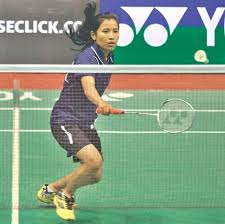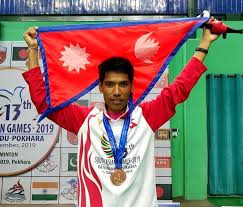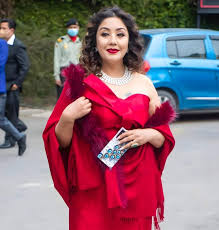Biography of Karishma Manandhar
Karishma Manandhar is one of the most iconic and celebrated actresses in the Nepali film industry. With a career spanning over three decades, she has become a household name in Nepal and remains a significant figure in the country’s entertainment landscape.
Early Life and Education
Karishma Manandhar was born as Surya Kumari on February 16, 1974, in Jharuarashi, Lalitpur, Nepal. She grew up in a middle-class family and had a passion for acting from a young age. Despite the conservative environment of the time, Karishma pursued her dreams and entered the world of Nepali cinema in the early 1990s.
Career Beginnings
Karishma made her acting debut at the age of 14 with the film “Santaan” in 1991, directed by well-known filmmaker Prakash Thapa. Her performance was widely appreciated, and she quickly became a popular figure in the Nepali film industry. The success of “Santaan” marked the beginning of her illustrious career, and she went on to star in numerous successful films throughout the 1990s and 2000s.
Rise to Stardom
Karishma Manandhar’s talent and beauty quickly made her one of the leading actresses in Nepal. She starred in several hit movies, including “Kasturi,” “Truck Driver,” “Basanti,” “Dhuk Dhuki,” and “Mayalu.” Her versatility as an actress allowed her to take on a wide range of roles, from romantic leads to strong, independent women, earning her critical acclaim and a massive fan following.
During the peak of her career, Karishma was often referred to as the “dream girl” of Nepali cinema. Her on-screen presence, coupled with her acting skills, made her one of the most sought-after actresses of her time.
Personal Life
Karishma Manandhar married Binod Manandhar, a film producer, and actor, in 1994. The couple has a daughter named Kabita Manandhar, who is also involved in the entertainment industry. Despite facing ups and downs in her personal life, Karishma has remained a resilient figure and has continued to pursue her career with determination.
Hiatus and Comeback
After ruling the Nepali film industry for years, Karishma took a break from acting in the mid-2000s to focus on her personal life and family. During this period, she lived in the United States for some time, where she continued her studies and explored different aspects of life outside of cinema.
In 2015, Karishma made a much-anticipated comeback to the silver screen with the film” Fagu,” which she also produced. The film was well-received, and her return was celebrated by fans and critics alike. Her ability to reinvent herself and stay relevant in the industry is a testament to her enduring appeal and talent.
Political Involvement
In addition to her work in the film industry, Karishma Manandhar has also been involved in politics. She joined the Nepali political party Naya Shakti Nepal, led by former Prime Minister Baburam Bhattarai, in 2017. Her foray into politics marked a new chapter in her life, reflecting her desire to contribute to society in a different capacity.
Legacy and Influence
Karishma Manandhar’s contribution to Nepali cinema is immense. She has not only entertained audiences with her performances but has also inspired many aspiring actors and actresses in Nepal. Her legacy as one of the most successful and beloved actresses in the history of Nepali cinema is firmly established.
Awards and Recognition
Throughout her career, Karishma Manandhar has received numerous awards and honors for her work in the film industry. Her achievements have been recognized at various national and international platforms, solidifying her status as a legendary figure in Nepali cinema.
Current Endeavors
Karishma Manandhar continues to be active in the entertainment industry, taking on selective roles in films and television. She is also involved in social work and continues to engage with her fans and followers through various platforms.
In conclusion, Karishma Manandhar’s journey from a young girl with a dream to one of the most iconic actresses in Nepal is a story of passion, perseverance, and success. Her impact on the Nepali film industry and her influence on future generations of actors will be remembered for years to come.












